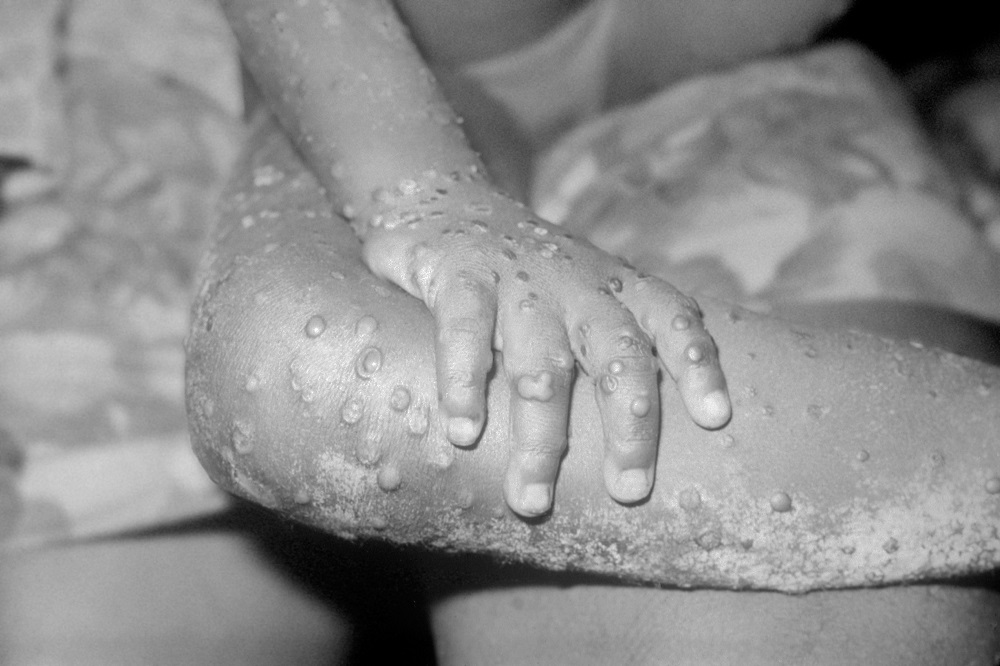First monkeypox case confirmed in Wales

The monkeypox virus has now been identified across the UK with the first recorded cases in Wales and Northern Ireland.
Health officials in Wales confirmed their first case on Thursday morning, before the Public Health Agency in Northern Ireland later confirmed a case.
Dr Giri Shankar, director of health protection for Public Health Wales, said: “We are working with the UK Health Security Agency (UKHSA), Public Health Scotland, and Public Health Agency Northern Ireland, and we are ready to respond to cases of monkeypox in Wales.
“The case is being managed appropriately. To protect patient confidentiality, no further details relating to the patient will be disclosed.
“Everyone is being asked to be aware of the monkeypox symptoms, but it is important that gay and bisexual men are alert as it’s believed to be spreading in sexual networks.
“Anyone with unusual rashes or lesions on any part of their body should contact NHS 111 or call a sexual health service if they have concerns.”
There are now believed to be 79 cases of monkeypox in the UK.
The UKHSA will update the totals later on Thursday.
‘Low risk’
Dr Gillian Armstrong, head of health protection at the Public Health Agency in Northern Ireland, said: “Following the detection of cases of monkeypox in England, the PHA has been in regular contact with UKHSA regarding the situation and we established a local multidisciplinary incident management team (IMT) to ensure that we are fully prepared for any potential risk to the population of Northern Ireland.
“The PHA has been working closely with trusts and GPs to raise awareness of the disease, and set up testing arrangements and clinical pathways.
“Cases of monkeypox are rare as the virus does not spread easily between people; therefore the risk to the Northern Ireland population is considered low.
“Appropriate public health actions are being taken and the PHA is working with UKHSA to investigate any potential links with UK cases and we will contact any potential close contacts to provide health information and advice.”
Despite the rise in cases, the UKHSA has said the risk to the overall UK population “remains low”.
Gay, bisexual and men who have sex with men are being urged in particular to be aware of symptoms, especially if they have recently had a new sexual partner.
UKHSA teams have been tracing contacts of those with a confirmed case and are advising those at highest risk to isolate for 21 days.
A smallpox vaccine is also being offered to close contacts to reduce their risk of symptoms and severe illness.
Support our Nation today
For the price of a cup of coffee a month you can help us create an independent, not-for-profit, national news service for the people of Wales, by the people of Wales.





Yeah okay. So that comment about gay and bisexual men needing to be particularly careful is unhelpful. 1. It plays to the stereotype that these demographics (exclusively) are promiscuous 2. It gives ammunition to bigots to alienate those demographics 3. It enables other (potentially promiscuous) groups to wrongly feel safe from infection 4. It enables the holier than thou to feel safe and to criticise Here is the thing. SOME gay and bisexual people are promiscuous. Most are not. SOME heterosexual people are promiscuous. Most are not. I presume the method of transfer matters here, meaning gay men are disproportionately… Read more »
In fact here you go. Copied form the US CDC (Centre for Disease Control). Like I said, FACTS TransmissionTransmission of monkeypox virus occurs when a person comes into contact with the virus from an animal, human, or materials contaminated with the virus. The virus enters the body through broken skin (even if not visible), respiratory tract, or the mucous membranes (eyes, nose, or mouth). Animal-to-human transmission may occur by bite or scratch, bush meat preparation, direct contact with body fluids or lesion material, or indirect contact with lesion material, such as through contaminated bedding. Human-to-human transmission is thought to occur… Read more »